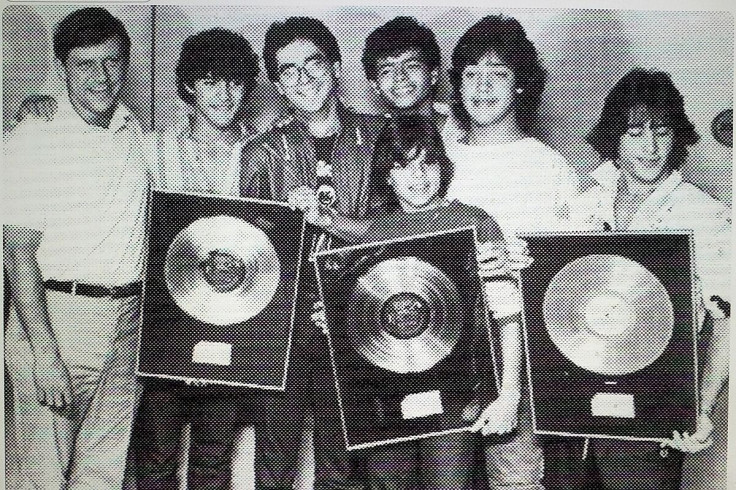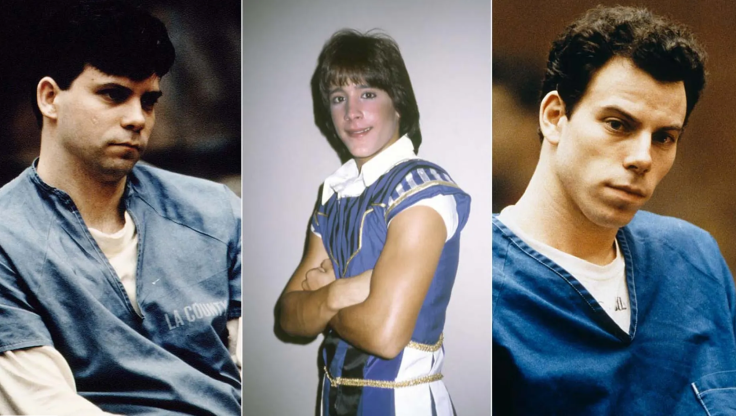
Former Menudo star Roy Rosselló has filed a sweeping civil lawsuit in New York's federal court alleging years of sexual abuse by Edgardo Díaz, the powerful founder and longtime manager of the iconic Latin boy band. The complaint, which is demanding a trial by jury, also implicates a towering figure from American music history: José Menéndez, the RCA Records executive who brokered Menudo's $30 million U.S. deal—and the father of Lyle and Erik Menéndez, who notoriously murdered him and their mother in 1989.
Rosselló, now in his early 50s and residing in Florida, filed the 17-page complaint under the Victims of Gender-Motivated Violence Protection Law. The suit lays out a detailed and harrowing account of sexual assault, emotional manipulation, and trafficking that spanned multiple U.S. states and countries, including Brazil and Puerto Rico, from 1983 to 1986—when Rosselló was between the ages of 13 and 16.
"After living with his trauma for nearly 40 years, Roy Rossello has courageously come forward to hold those responsible for his abuse accountable. Roy is one of the strongest, most credible individuals we have ever represented, and his story is one that will no doubt have a positive impact on the ever-changing childhood sexual abuse landscape in this country. We join Roy in asking that anyone with relevant information come forward and assist us in this important investigation," said Rosselló's lawyer Britanny Henderson, in a statement provided to The Latin Times.
The lawsuit accuses Díaz, now 77, of operating Menudo as a "front" to sexually exploit underage boys under the guise of pop stardom. "Diaz's scheme was nothing more than a brazen way to satiate his own predatory behavior," the complaint alleges.
But perhaps the most explosive revelation in the filing is Rosselló's accusation that José Menéndez, then a senior RCA Records executive, raped him on multiple occasions while accompanying the band. According to the complaint, Díaz facilitated these encounters, including one at Menéndez's New Jersey home and another at a New York City hotel room after a Radio City Music Hall performance. Rosselló states he was "in terrible pain for a week" and "could barely stand."
The lawsuit also claims Menéndez raped Rosselló in Brazil while on tour with Menudo—this time, with Díaz allegedly present in the room. These claims directly tie the Menéndez family patriarch to the dark underbelly of Latin pop's explosive 1980s rise.
The Menéndez brothers have long claimed that their father was physically and sexually abusive— a key element in their defense during their high-profile 1993 trial and their recent efforts to be released, either through retrial, resentencing or pardon.
At the time, many dismissed the accusations as a desperate legal strategy. But the new civil complaint by Rosselló may provide independent corroboration for at least part of those claims. No criminal charges were ever brought against José Menéndez, who was murdered at age 45.

Rise of a Pop Juggernaut
Menudo, founded in Puerto Rico in 1977 by Díaz, became one of the most successful Latin acts in history. Over its two-decade run, the band featured rotating members between the ages of 12 and 16, including future superstar Ricky Martin, who was part of the band when the alleged abuse happened.
Díaz insisted on a strict policy of replacing members as they aged, keeping the band perpetually young—a strategy critics say was less about marketing and more about control.
According to the lawsuit, Díaz specifically targeted boys from poor communities with promises of fame and financial stability. At the age of 13, Menudo recruited Rosselló from his working-class neighborhood in San Juan after he visited his headquarters. Within days, he alleges, Díaz pulled him out of school without parental consent and raped him.
From that point forward, Rosselló claims he was sexually assaulted three to four times per week during global tours. The assaults allegedly took place in states including New York, California, Texas, Florida, and Hawaii, as well as overseas locations such as the Bahamas, South America, and Guam.
Among the most disturbing allegations in the filing are claims that Rosselló was raped in New York during tapings of the 'Merv Griffin Show,' 'American Bandstand,' and 'Sesame Street.' Rosselló's account is methodically tied to real-life events—including performance dates, television appearances, and hotel stays—to illustrate a consistent pattern of abuse.
A System of Silence
Rosselló is not the first former Menudo member to accuse Díaz of abuse. Ralphy Rodriguez, who joined the group in the late 1980s, went public in 1991 on Puerto Rican television, only to have police shut down the broadcast mid-air. Díaz has repeatedly denied all allegations, famously telling a journalist in 2014, "You only have one life, and I live in peace."
Other former members and insiders—including René Farrait, Ray Reyes (now deceased), and Angelo García—have since echoed Rosselló's claims in media interviews and documentaries.
Despite years of rumors, Rosselló's lawsuit is the most comprehensive legal action to date, backed by detailed descriptions, timelines, and corroborating public records of Menudo's movements. In 2022, Rosselló also filed a police report with the Los Angeles Police Department, further formalizing his claims.
The complaint emphasizes that Díaz's actions were motivated by gender, arguing that he specifically built Menudo as an all-boy group for the purpose of exploiting young males. It notes that his earlier project, La Pandilla, featured both male and female members—but Díaz dropped the girls when forming Menudo.
Legal Implications
Rosselló's lawsuit seeks damages under New York City's GMVA law, enacted in 2000, which allows victims of gender-motivated violence to bring civil actions in court. His lawyers argue the lawsuit is timely due to recent legal extensions under the Adult Survivors Act, which temporarily lifted statutes of limitations for sexual abuse claims.
Legal experts say the case could have broader implications—not only for Díaz but also for RCA Records and potentially Sony Music, its successor company. Although RCA is not a named defendant in this case, the filing details its close involvement with Menudo, including financing global tours during which abuse allegedly occurred.
"RCA knew that Menéndez was infatuated with the band," the lawsuit asserts, yet continued to allow him unsupervised access to its underage members.
"No Greater Harm"
Rosselló concludes his complaint by describing the enduring psychological trauma he has suffered. He claims he attempted suicide multiple times, including once just before being dismissed from the band in 1986. Díaz allegedly told the public at the time that Rosselló had become "difficult to manage."
"There is no greater harm that can be done to a human being," the lawsuit states.
As of this publication, Díaz has not publicly responded to the lawsuit. The estate of José Menéndez could not be immediately reached for comment.
If the court accepts Rosselló's complaint, it will mark a turning point not just for one former child star—but for an entire generation of Latin pop fans now grappling with the darkest legacy of Menudo's fame.

© 2025 Latin Times. All rights reserved. Do not reproduce without permission.








